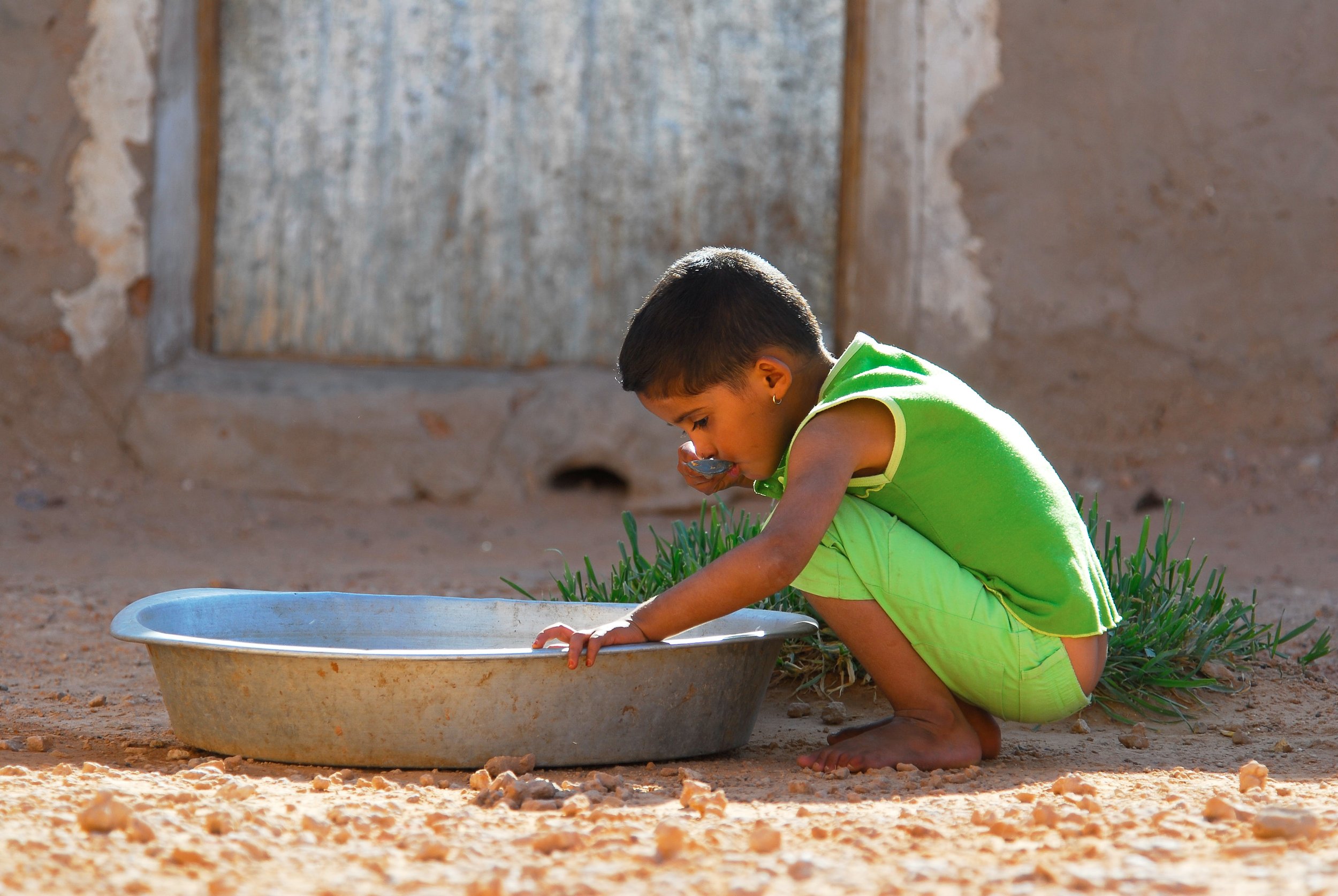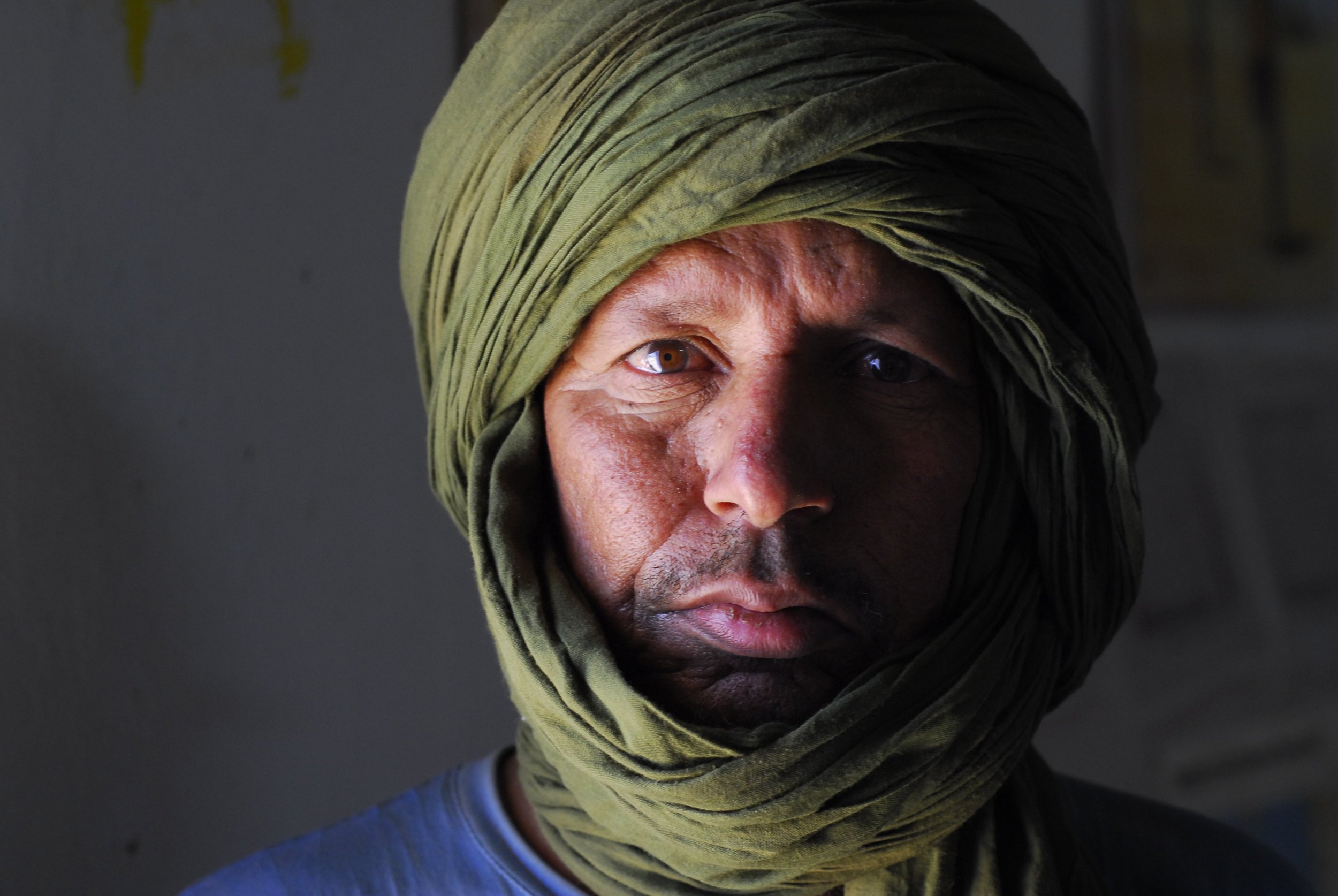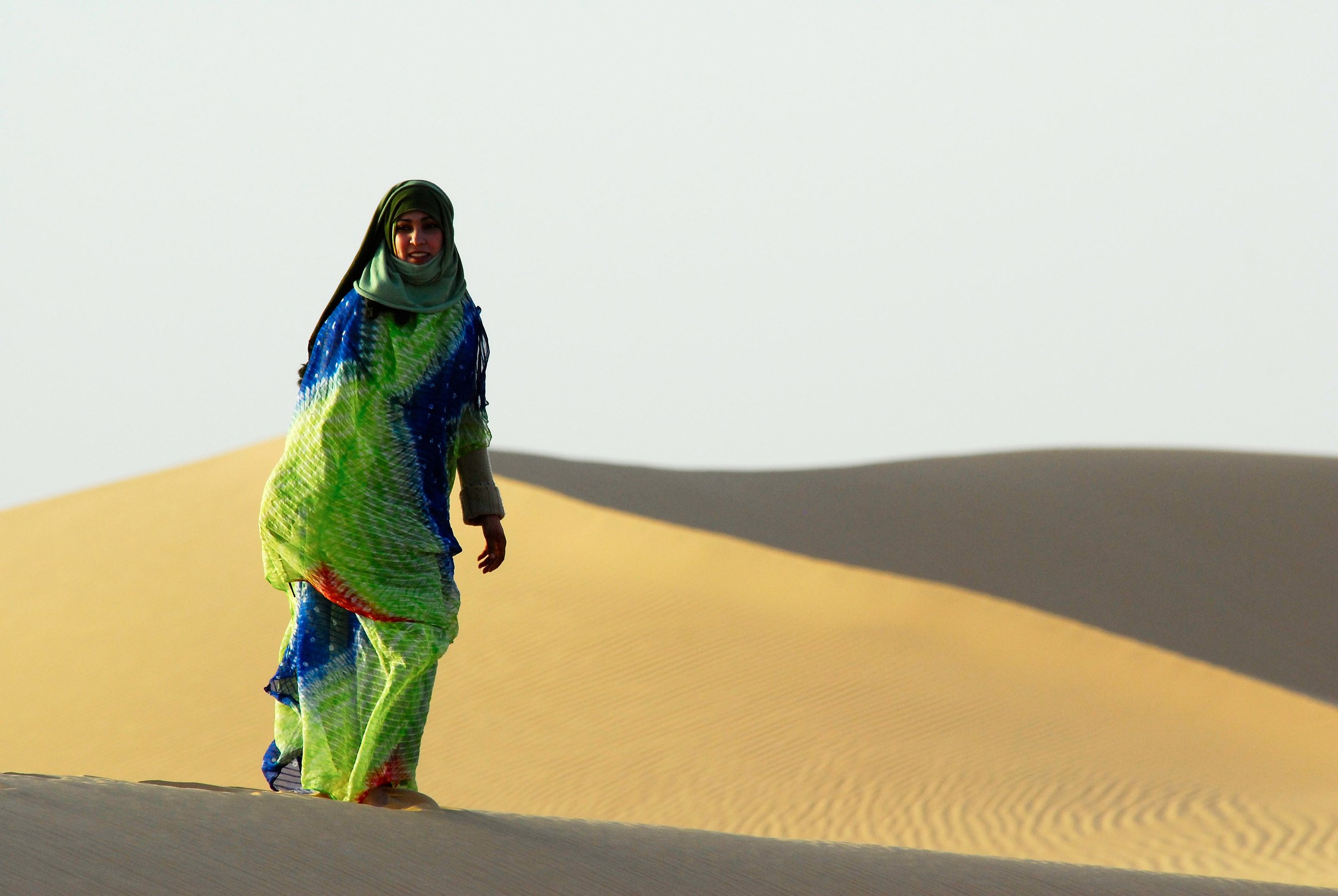![western-sahara-map]()
western-sahara-mapHand drawn map on a piece of cardboard on display inside a military post in Tifariti , showing the border between the Moroccan occupied territory and the Polisario controlled liberated zone of Western Sahara
![polisario-military-base-western-sahara]()
polisario-military-base-western-saharaA group of soldiers are standing next to a low ochre coloured building in the desert in the Polisario controlled area near Tifariti known as the liberated zone of Western Sahara
![polisario-soldiers-western-sahara]()
polisario-soldiers-western-saharaA group of Polisario soldiers watch a news program a small television in a military outpost in Tifariti, in the liberated zone of Western Sahara. Kalashnikov AK-47 semi automatic rifles are propped up against the walls
![polisario-soldier-western-sahara]()
polisario-soldier-western-saharaA Polisario soldier serves tea inside a military outpost in the liberated zone of Western Sahara. Two Kalashnikov AK-47 rifles are leaning against the wall
![western-sahara-abandoned-military-base]()
western-sahara-abandoned-military-baseAbandoned Polisario military base in the desert near Tifariti
![abandoned-military-base-western-sahara]()
abandoned-military-base-western-saharaA ray of sunlight streams through a square hole in the corrugated steel roof of an abandoned military outpost in the desert in Western Sahara
![polisario-soldiers-western-sahara]()
polisario-soldiers-western-saharaA group of young Polisario soldiers in khaki uniforms take a break from military training and sit in the shade of a small group of dry bushes in the desert in the liberated zone of the Western Sahara
![young-polisario-soldier-western-sahara]()
young-polisario-soldier-western-saharaPortrait of a young soldier in Western Sahara, sitting with his comrades in the shade in the desert in the Polisario controlled liberated zone of Western Sahara
![western-sahara-desert]()
western-sahara-desertA spent and rusted shell is lying on the ground in the desert in Western Sahara. The disputed territory is littered with unexploded ordnance as well as spent shells from previous conflict
![western-sahara-abandoned-tank]()
western-sahara-abandoned-tankAbandoned tank in the desert in Tifariti, in the Polisario controlled area of the liberated zone of Western Sahara
![western-sahara-explosion]()
western-sahara-explosionA controlled explosion of abandoned ordnance is seen from a distance in the desert near Tifariti in the Polisario controlled area of the liberated territory of Western Sahara
![polisario-soldiers-in-training-western-sahara]()
polisario-soldiers-in-training-western-saharaGroups of young soldiers perform training exercises in the desert near Tifariti in the liberated territory of Western Sahara
![polisario-soldiers-on-parade-western-sahara]()
polisario-soldiers-on-parade-western-saharaYoung Polisario fighters line up for inspection in the desert in the Polisario controlled area near Tifariti in the liberated territory of Western Sahara
![polisario-soldier-with-AK47-western-sahara]()
polisario-soldier-with-AK47-western-saharaPortrait of a young Polisario soldier holding his Kalashnikov rifle in the desert in the Polisario controlled area near Tifariti in the liberated territory of Western Sahara
![western-sahara-polisario-army]()
western-sahara-polisario-armySeasoned Polisario fighters in khaki uniform show off some of their military hardware in the desert in the liberated territory of Western Sahara
![western-sahara-polisariofflag]()
western-sahara-polisariofflagTwo soldiers seen in silhouette lowering the Polisario flag at sunset in a military outpost in the desert near Tifariti in the liberated territory of Western Sahara
![western-sahara]()
western-sahara Detail of text displayed either side of a curtain inside a military building in Tifariti in the liberated territory of Western Sahara
![western-sahararrefugee-camp-with-tents]()
western-sahararrefugee-camp-with-tentsTraditional style Saharawi tents in between mud-brick buildings in a refugee camp in South West Algeria
![western-sahara]()
western-saharaLight is streaming through a small window onto a low table inside a dark room
![refugee-camp-western-sahara]()
refugee-camp-western-saharaView across the mud brick buildings of a refugee camp in South western Algeria
![western-sahara-family-home]()
western-sahara-family-homeTwo boys are sitting on a carpet on the floor inside a sparsely furnished house and their father enters through a door to their left
![child-in-western-sahara]()
child-in-western-saharaA small child wearing brightly coloured but dirty clothes is standing barefoot next to some rocks in a refugee camp in South West Algeria. Low mud brick buildings can be seen in the background
![child-in-refugee-camp-western-sahara]()
child-in-refugee-camp-western-saharaA young girl with no shoes wearing green clothes is squatting on the ground and drinking water from a large aluminium bowl on the ground
![wester-sahara-refugees]()
wester-sahara-refugeesTwo women wearing tie dyed fabric and head scarves covering their faces sit on the ground leaning against the wall of a building in a refugee camp in South Western Algeria
![landmine-victim-western-sahara]()
landmine-victim-western-saharaDramatic, side-lit portrait of a man wearing a traditional Saharawi headscarf looking directly in to the camera
![women-in-western-sahara-refugee-camp]()
women-in-western-sahara-refugee-campThree Saharawi women wearing very brightly coloured fabrics are standing in a dusty environment in a refugee camp in SW Algeria
![western-sahara-women]()
western-sahara-womenA Saharawi woman wearing tie died fabric and head scarf touching her left index finger to her lip
![western-sahara-sand-dune]()
western-sahara-sand-duneA woman wearing brightly coloured traditional Saharawi clothes standing on a sand dune in SW Algeria
![western-sahara-containers]()
western-sahara-containersAbandoned vehicles and rusty shipping containers in the desert in a refugee camp in South West Algeria
![western-sahara-shop]()
western-sahara-shopArabic writing is seen on the walls of an improvised shop in a refugee camp in South Western Algeria. In front of the shop is a red bicycle missing its rear wheel
![western-sahara-bricks]()
western-sahara-bricksRows of mud bricks drying in the sun in a refugee camp in SW Algeria. In the background is a traditional Saharawi nomadic tent
![western-sahara-home]()
western-sahara-homeA Saharawi man is standing amid the rubble of a home as he looks at the newly built walls of a mud brick home which he is building in a refugee camp in South Western Algeria
![western-sahara-football]()
western-sahara-footballA young Saharawi boy throwing a football up in the air in a refugee camp in SW Algeria
![boy-riding-a-bicycle-western-sahara]()
boy-riding-a-bicycle-western-saharaA young Saharawi boy rides a bicycle in a refugee camp in SW Algeria
![western-sahara-children]()
western-sahara-childrenChildren playing with an old tyre and a football are seen in silhouette in a dusty environment in a refugee camp in SW Algeria
![western-sahara-sunset]()
western-sahara-sunsetA boy is seen in silhouette, leaning against a chain-link fence as the sun sets in a refugee camp in SW Algeria



































